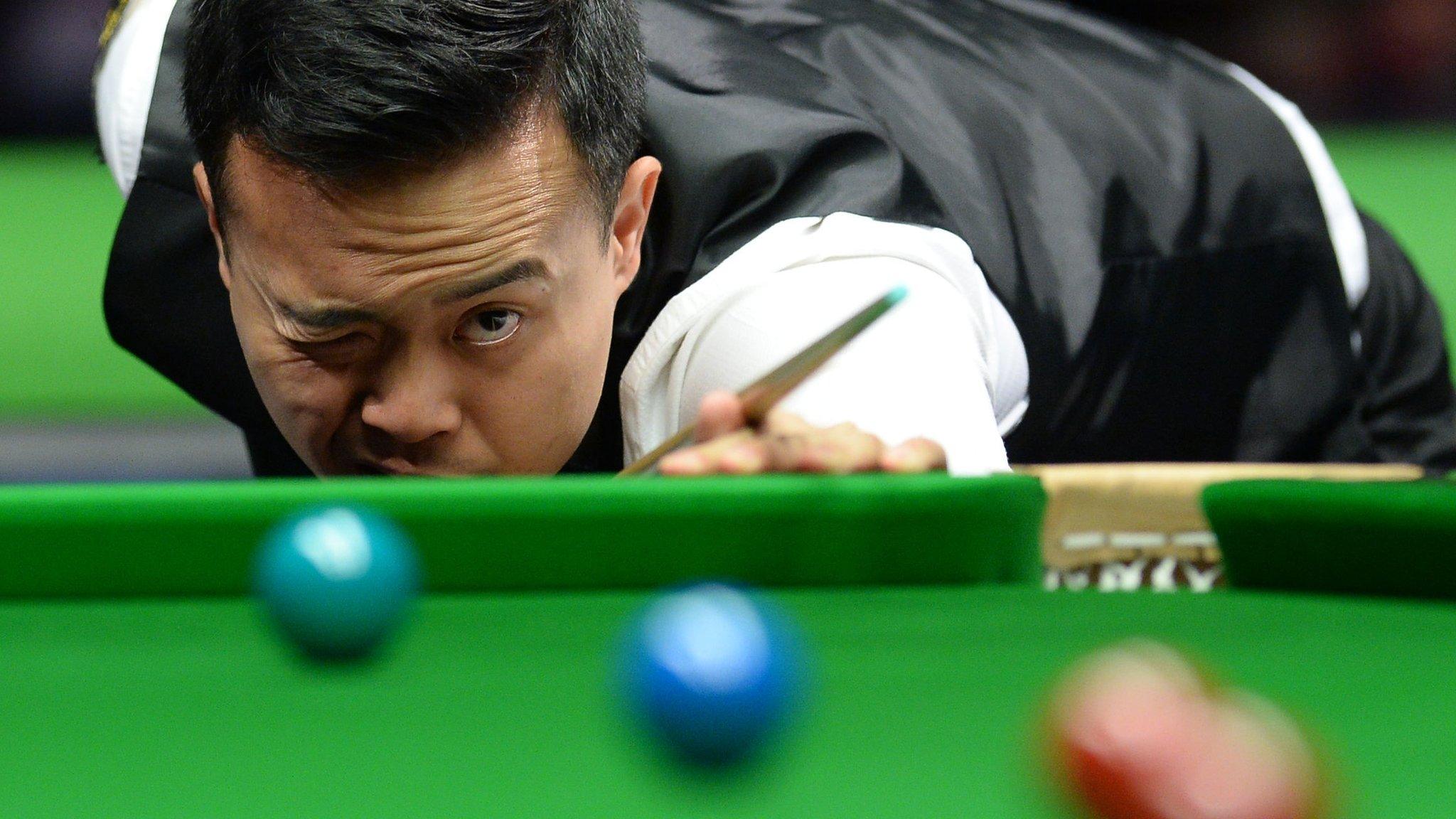Stephen Hendry: Snooker is 'dying a slow death' at amateur level
- Published
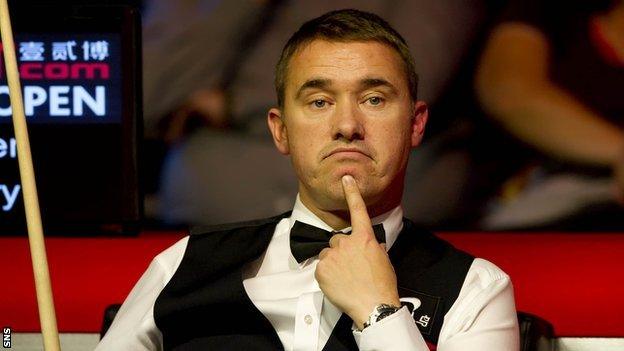
Hendry believes the Scottish Open will be a test for the future of the game in Scotland
Scotland has produced some of the world's most successful snooker stars, with pubs and clubs around the country once full of people playing the game.
But, as the Scottish Open makes its return to Glasgow, seven-time world champion Stephen Hendry told BBC Scotland the sport at amateur level is "dying a slow death" throughout the UK.
"There seemed to be snooker clubs round every corner, you'd be hard pressed to find one now so obviously finding places to play is increasingly difficult," said the 47-year-old.
"It is disappointing but sometimes these things go in cycles and there might be a time when these sort of players come back again.
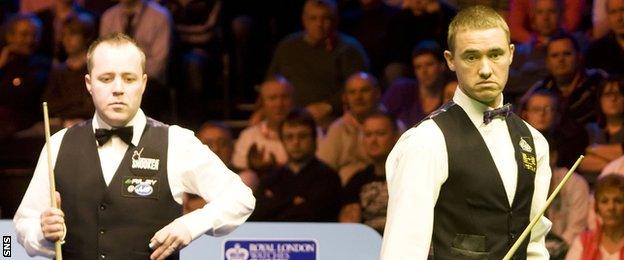
Scots John Higgins and Stephen Hendry hold 11 World and eight UK titles between them
"But at the moment it is hard to see where the next genius player from the UK is coming from."
A 1995 survey by Scottish Snooker - the body that looks after the amateur game - showed there were 192 clubs across the country. But their last count shows there are now only 60 or so remaining.
Alan McManus turned professional in 1990 - another product of a toy snooker table received one Christmas, which led to youth coaching and junior tournaments.
The Glaswegian believes the reason there are fewer like him in the game is simple - online distractions.
"That's what kids are into now unfortunately and the first thing they do in the morning and the last thing at night is look at their phone," he said. "And if you want to be a snooker play you should be binning your phone, getting yourself on the table and working hard.
"It's unfortunate and the boys who have been there for a while - Graeme [Dott], John [Higgins] and Stephen Maguire - are still holding their own and doing well.
"We'll keep trying but one thing I would like to see is a bit of funding. With the heritage and history we have with snooker it would be merited."
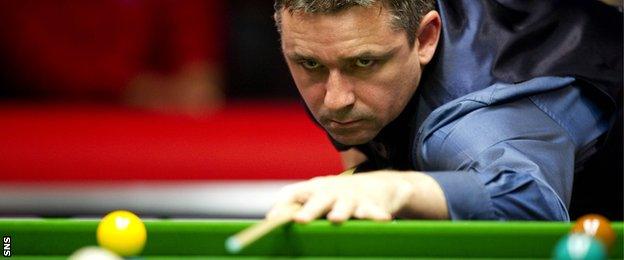
Alan McManus at the World Open in 2010 - the previous ranking event to be held on Scottish soil
Hendry too believes there are so many more options compared to when he and McManus, 45, were growing up, and perhaps potting balls on a table does not have the same appeal.
"There are so many other activities and football dominates sport in in Scotland and the UK," he added. "Any kid growing up who is half-decent at sport will want to be a footballer because of the money.
"Snooker is unique and very difficult. Youngsters get into but find it so tough they lose interest quickly."
It is not all bad news though. Scottish Snooker believe the worst is over and they are making progress when it comes to ensuring a few of our own remain at the top, despite countries like China producing increasing numbers of talented players.
Secretary Anne Totten believes it is time to move past reminiscing and to take action.
"Kids aren't necessarily as eager to put in as much work as they can get results much more quickly from technology," she said.
"And parenting has changed slightly too - they don't want to their kids to go out to pubs and clubs, they maybe see it like the 80s where people were smoking, drinking and gambling. In fact, the smoking ban has had an impact on some of the pubs closing down too.
"But they are really safe environments. My own son plays snooker and it's amazing for him to get used to all different generations, learn about respect, have a conversation and he's learned a lot about discipline and numeracy as well."
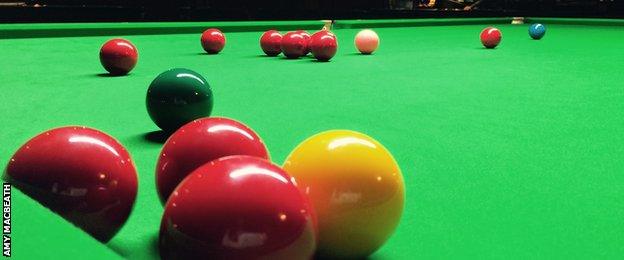
Six new youth coaching academies have been confirmed for around Scotland to help make the sport more accessible
Scottish Snooker is working with the national sports body sportscotland with the aim of being formally recognised so they can apply for funding, which it believes will help make it more accessible.
"We're trying to make sure there's an academy in every geographical locations so there's no barriers - providing cues, coaches, venues etc," said Totten.
As an added bonus, snooker's governing body - the World Professional Billiards and Snooker Association Limited - has just announced six new youth coaching academies north of the border, which could mean a Scottish presence will continue to be felt at the top of the game for decades to come.
- Published12 December 2016
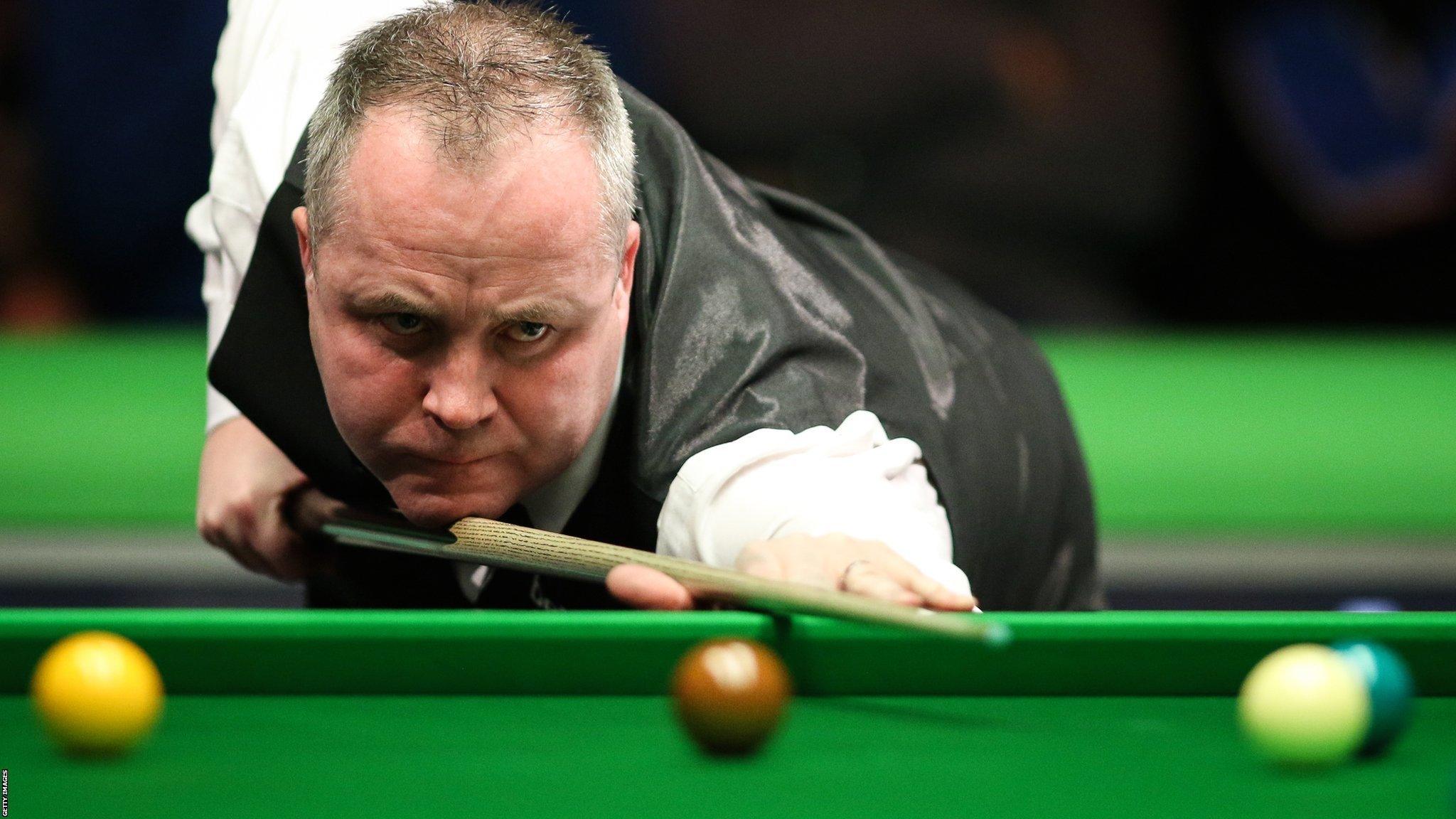
- Published5 December 2016

- Published6 December 2016
